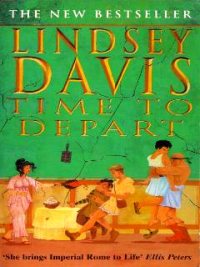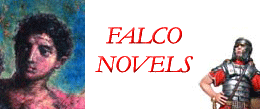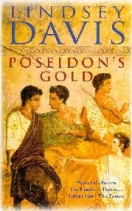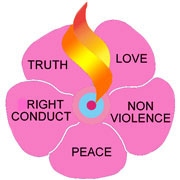
Taking up themes in the Falco Novels, we now look to Masculinity as virtue. Is masculinity a troubling term? Is masculinity how a man defines and expresses his manhood, his maleness? Is masculinity something a man does and expresses in word and action, or is it a facet of his being, his self? What exactly is masculinity?
![]()

 With so many of the Falco novels focussing on aspects of Law and Order in ancient Rome, it is worthwhile to examine some aspects of this presented in Time to Depart. Falco’s friend Petro is a leader of a cohort of Vigiles.
With so many of the Falco novels focussing on aspects of Law and Order in ancient Rome, it is worthwhile to examine some aspects of this presented in Time to Depart. Falco’s friend Petro is a leader of a cohort of Vigiles.  When Falco was but a tyke, his family consisted of his father Marcus Didius Favonius (aka Geminus), his mother Junilla Tacita, and seven children: Festus, Vittorina, Maia, Falco, Junia, Allia and Galla. At the time of this novel his older brother Festus, late of the Legio XV Appolinaris, has been dead three years. We may hear more of how Festus came to his end in the Judean War. His older sister Vittorina died during December of AD71 whilst Falco was in Free Germany, serving the Emperor. Vittorina died of ‘womens troubles’; the remainder of his sisters are alive.
When Falco was but a tyke, his family consisted of his father Marcus Didius Favonius (aka Geminus), his mother Junilla Tacita, and seven children: Festus, Vittorina, Maia, Falco, Junia, Allia and Galla. At the time of this novel his older brother Festus, late of the Legio XV Appolinaris, has been dead three years. We may hear more of how Festus came to his end in the Judean War. His older sister Vittorina died during December of AD71 whilst Falco was in Free Germany, serving the Emperor. Vittorina died of ‘womens troubles’; the remainder of his sisters are alive. Poseidon’s Gold is somewhat focussed around relationships within the Falco family. It also reveals Falco’s determination to make an honest woman of Helena Justina and bring no dishonour to her family, by marrying out of station-in-life. Due illegal trading by Festus and probing by centurions of his Legion, Falco is charged by his mother to protect the good name of his family; he also takes up the task of protecting his Father’s good name as an auctioneer against the overweening possessiveness of the art collectors, who seek to ruin him, and that, feloniously.
Poseidon’s Gold is somewhat focussed around relationships within the Falco family. It also reveals Falco’s determination to make an honest woman of Helena Justina and bring no dishonour to her family, by marrying out of station-in-life. Due illegal trading by Festus and probing by centurions of his Legion, Falco is charged by his mother to protect the good name of his family; he also takes up the task of protecting his Father’s good name as an auctioneer against the overweening possessiveness of the art collectors, who seek to ruin him, and that, feloniously. The family is the only unit in society based on need. To a degree, this was the same in Roman times, although the extensive fiduciary support we have come to take as the norm in this day and age (i.e. supporting parent benefits, child endowments, etc.) did not exist in Falco’s times.
The family is the only unit in society based on need. To a degree, this was the same in Roman times, although the extensive fiduciary support we have come to take as the norm in this day and age (i.e. supporting parent benefits, child endowments, etc.) did not exist in Falco’s times. The Falco Novels cover a wide range of human behaviour. All behaviour is values-driven. After all, people, usually seek their own good, their own ends. Look after Number 1 would be a common value held by many people. Giving to the poor and charity would be another value held by others.
The Falco Novels cover a wide range of human behaviour. All behaviour is values-driven. After all, people, usually seek their own good, their own ends. Look after Number 1 would be a common value held by many people. Giving to the poor and charity would be another value held by others.